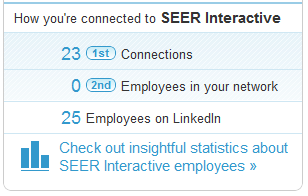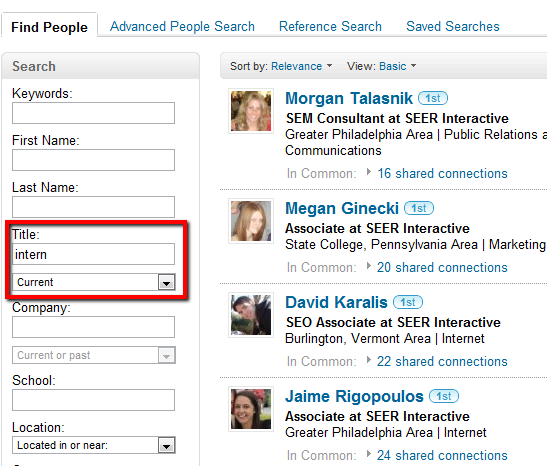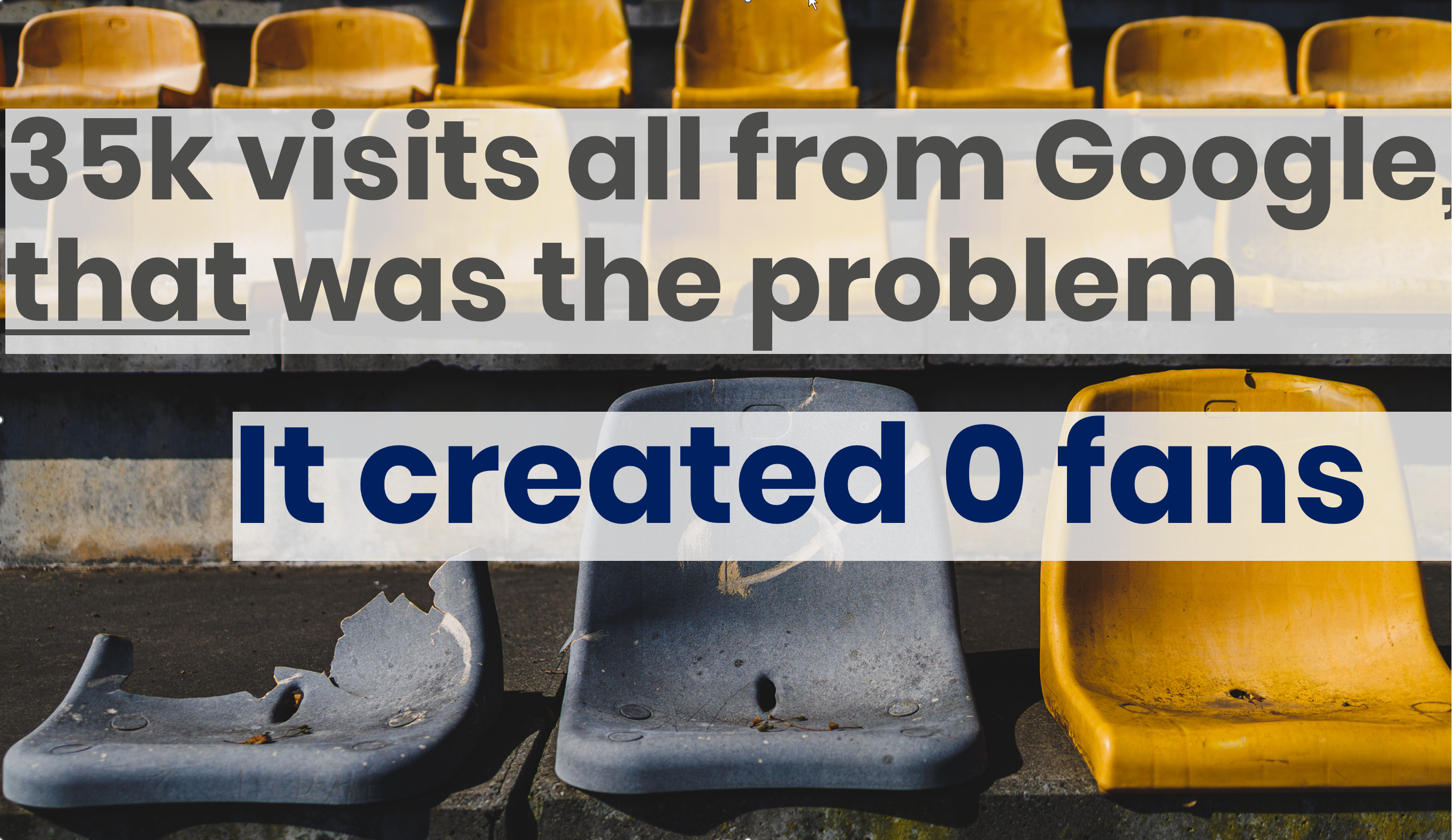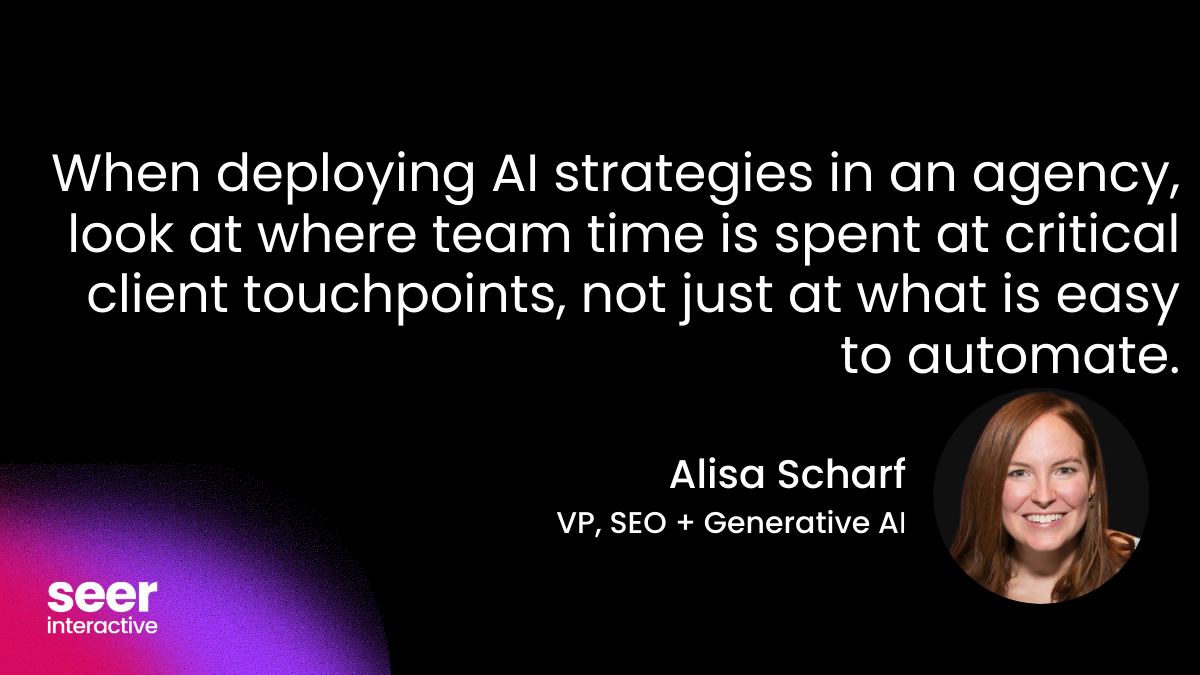The topic of how to pick an SEO company has been well covered by SEOmoz, Google, and us on how to pick an SEM/SEO company.
Today I want to give you a more concrete (and maybe self serving) way of how I would pick a search company, boiled down into a few steps. So, throw away the RFPs and stop looking at the client list, and DEFINTELY don't look at topseos.com rankings...here's a new way to evaluate the company's passion for search.
People passionate about search are:
- occasionally staying late to help you
- digging through every resource possible to find an answer
- looking for new ways to tackle old problems
- taking the work personally, they take bad results personally, they don't ever give up
If I were you I'd want those kinds of people working on my project...here's how to find a company that has that passion.
STEP 1 - Twitter - Do the SEM/SEO strategists have twitter accounts?
Look for the company's senior strategists profiles on twitter - Heck, do they even have a freaking twitter account? You'd be amazed, I was, let me give you some examples...
I am not going to name names, but I quickly looked up 5 senior search friends (senior = 6+ years search experience) at agencies who get BIG clients and are in the Philly/NYC/DC region...most of them did not have a Twitter account (or I couldn't find it, which is just as bad). One had an account with 3 posts in a year yet she is a director of SEO! Are you freaking kidding me? Here we have senior search strategists, in companies who land BIG clients, not on twitter? In this industry especially, I don't know how you can do that.
Lets contrast that to some newer peeps:
Take Napoleon Suarez a person who interned with us, blew us away and has been working here ever since - look at his activity

Not only is he following people, people are following him, a lot of them in fact. He's a 1.5 year SEO yet he would run circles around several of the "senior" search strategists above.
Sam Crocker is a good friend, who got his first SEO job around Jan 2010 - here we are a year later, look at his profile:

Use the SEER most tenured peeps as an example - Crystal Anderson, Bonnie Schwartz, Adam Melson, Rachael Gerson, and Me. Look at the profiles, they are LITTERED with SEO posts, analytics posts, SEM posts b/c we really are deep int this stuff. You want to find an organization where the passion for the work flows from the top and infects everyone.
I recommend that you also look at who a company's team members @ messages go to on twitter...often you'll see them interacting with, RT'ing, etc with industry vets...you want people on your search team who are networked - it will help them help you!
STEP 2 - Twitter as a research & networking tool
If they actually have a twitter account with some activity...don't worry about how "internet famous" they are - follow/followed ratios don't mean a ton when picking a firm. You do want to look at who do they follow...do they follow some of Google's official profiles to get the news as it breaks for Google Retail, Google Local, here's the list? Do they follow industry specialists? Do they follow random accounts too? (Why is following random accounts important? Simple...you want someone who has interests other than SEO/SEM) Being out there in the world, helps you get new ideas.
You can easily look at someone's account, here's my pal Ross Hudgens as an example - followers are easy to see:

Lets remember the role that twitter plays for many search professionals:
- It builds their network, meaning when they get in a bind they actually have people who will help them out
- It helps them stay on top of their industry and connect with the thought leaders of the space
- Helps you figure what the hottest topics in your industry are, when you see several peers tweeting it
Those three reasons alone should make you think when picking a search firm/consultant/in-house...if the senior people don't have twitter accounts (or very sparse ones, or ones with nothing about the industry) then you gotta start asking questions like:
1 - how are THEY learning? 2 - if they don't see value in networking & learning, then how likely are they to be emphasizing that to their team? 3 - how are they staying on top of trends? 4 - how can they even advise you on how twitter helps SEO, if they don't even have an active account? 5 - If they don't have a twitter account, then you KNOW they probably don't know squat about the new stuff like Panda, Farmer, +1, etc.
Ask yourself, is that the SEO company or SEO consultant you want working on your account
STEP 3 - Linkedin to Keep them honest Agencies love to lie, they love to lie about their clients and they love to lie about how big they are, so turn to Linkedin to get the real deal...
First get the employee count, this will tell you whats up: 
But it doesn't tell the whole story, stacking my company full of 10 interns and me, is technically an 11 person company, but do YOU want a ton of interns working on your baby, with one overworked person at the helm?
Use Linkedin to see intern to staff ratio here's how to search for titles for current jobs (no those folks are not interns at SEER): 
I'm not saying interns are a bad thing, 1/2 our staff are interns turned into full timers, but you just want to do some digging beyond just number of employees.
STEP 4 - Use Linkedin to determine the sales to team ratio
This matters because all search firms are growing, the question is are they growing because they are great at sales, or are they growing because they are great at SEARCH and their clients refer them often? You can find this out...
Here is an example of a sizable SEO firm with high sales/employee ratio - out of 62 employees on Linkedin, 33% are sales / marketing - this could skew high since seo & sem people are marketers: 
Compare that to Distilled  or SEER where the ratios are lower.
or SEER where the ratios are lower.  .
.
While that is NOT a disqualifier, if your agency is getting a ton of referrals - they probably don't need a sizable sales staff, thats just my opinion. Remember smaller firms may have a higher ratio, so don't disqualify a quality firm because they are small and have 1 of 5 members on sales.
STEP 5 - Use Followerwonk to see who they follow Do people at said company follow the industry leading information sources? How will you know?
You can use followerwonk to put in sources of search marketing news or leadership, the key is the account can't follow a ton of people back or it skews the research. You'll get a venn diagram and in the example below, where I used search engine watch, search engine land and matt cutts - I can see the overlap between all three or just two of the accounts, which I can then see if my account person is following them. (Note: I would fail this test, I stopped following news sources on twitter). But it is still one way to check up. 
I hope this new pivot on an oft discussed topic, I hope it helps anyone looking for an SEO or SEM agency, its a tough industry to sort through.


